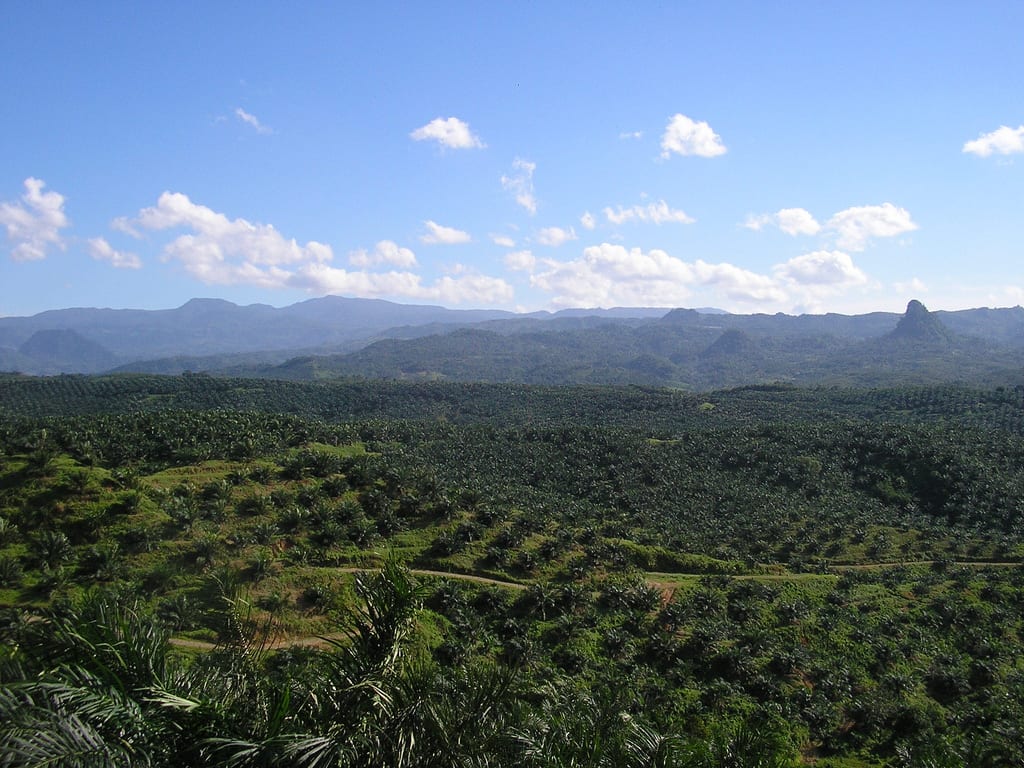
Opposition Mounting to Anti-Forest Legislation in Indonesia
New York Times report, public announcements by major companies highlight risk to Indonesia’s economy
As Rick Paddock and Muktita Suhartono of the New York Times document, there is growing concern in Indonesia and around the world about legislation that would roll back bedrock forest and environmental protections. This story and a recent announcement from Jardine Matheson, a company with a major presence in Indonesia, underscore the potential economic fallout of the proposed “Omnibus Bill,” which is set to pass the Indonesian parliament by the end of next week.
“The government is pursuing this policy as if they were completely deaf and blind to the effect on people by the emerging climate crisis,” said Phelim Kine, senior director for Asia at Mighty Earth, a global environmental campaign organization. “This is the Indonesian equivalent of ‘Drill, baby, drill.’”
Indonesia, which straddles the Equator and once had vast rainforests, has lost much of its forest cover to intentional burning that has been used for decades to clear land for palm oil plantations.
[…]
The lack of safeguards and the reduction in environmental protections could make foreign investors — especially those from Europe, where environmental standards are high — less interested in putting money in Indonesia.
Reinforcing this point is a recent announcement from multinational conglomerate Jardine Matheson, which has come under fire for its environmental practices in Indonesia and is the owner of Indonesia’s largest company, Astra International. On September 30, Jardine Matheson released a public letter in support of “proposed UK legislation aimed at ensuring that companies only use responsibly sourced ‘forest risk’ commodities, and the EU initiative to reduce the impact on deforestation and forest degradation of products sold in the EU.”
Like most palm oil and paper companies in Indonesia, Astra Internatonal’s Astra Agro Lestari palm plantation operations are growing without deforestation. In fact, palm oil deforestation has declined from 400,000 hectares per year to fewer than 100,000 in each of the last three years; overall deforestation in Indonesia is at its lowest level since 2003.
But the elements of the Omnibus Bill that risk accelerating deforestation pose a serious risk to Indonesia’s attractiveness to international investors that are increasingly enshrining environmental sustainability standards into their investment decisions. This risk could negate the government’s hopes that the Omnibus Bill is an essential tool for boosting international investment in the country.
That assessment was implicitly echoed in July by the World Bank’s Indonesia and Timor Leste country director, Satu Kahkonen, who criticized the bill by warning that in its present form it “is basically not helping Indonesia” because it will “move Indonesia’s environmental legislation further away from the implementation of best practices.”
Indonesian palm oil producers, whose exports constitute more than two percent of Indonesia’s annual gross domestic product, should recognize that the bill’s pro-deforestation elements are counter-productive and speak out against the rush to pass a bill that could harm their long-term economic interest.
Taken together, these statements and concerns clearly demonstrate the environmental and economic perils of the Indonesian parliament passing the Omnibus Bill without significant changes.
The government of Indonesian President Joko “Jokowi” Widodo and Indonesian lawmakers should heed these warnings and suspend the passage of the Omnibus Bill in order to allow for public consultation on its environmental implications.


